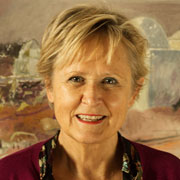Author: Doris Bühler-Niederberger, Senior Professor of Sociology, University of Wuppertal, Germany

We do not shape our lives as isolated individuals, but embedded in intergenerational relations. This is the idea behind our "Handbook of Childhood and Youth in Asian Societies".
Strong generational relations in Asian societies
More than half of the world's children grow up in Asia, a continent of rapid economic and social change. Undoubtedly, there are many differences and inequalities in the conditions of growing up in Asia’s various countries, regions and among social groups. Growing up in different Asian societies nevertheless has one important thing in common: it is the way and the extent to which the generations are supposed to stay connected throughout their lives.
A strong obligation to support the parents, with material benefits and care, and the normative expectation to pay obedience to them binds the young generation to the family. These are generational relations that we rarely encounter in Western countries and that are given far too little consideration, for example, by the educational programs of international organisations. The relationships between the generations are by no means tied to tradition alone. They are constantly reworked in view of social change, economic booms, but also existential hardship and mass migration within and across national borders
Looking at generational gaps and solidarities from the point of view of the young generation
Our aim is to make the perspective of children and young people and their attempts and failures in taking influence on generational relations visible, including for scientists and experts from Western countries.
We want to make it clear what it means for young people when the family occupies the future of children and young people in Central Asia and decides on their choice of career and partner [1] or what indebtedness the generational contract can bring e.g. in families of rural migrants in China [2], or how and with what consequences international programs such as the ones providing support for victims of violence against children and women are aligned with local generational ideals [3]. This is just to give some examples of how generational relations can be resources for but as well barriers to shaping individual and societal futures.
Establishing a network of Asian and European researchers
We are four researchers from Asia and Europe who have set ourselves the goal of compiling contributions that are capable of shedding light on the variety of situations in which generational relations can offer potential but also impose obstacles and disadvantages for Asia's young people.
They will be published in a handbook [4] and we four editors – Xiarong Gu, Elena Kim, Jessica Schwittek and me – consider it a particular plus that we have been able to assemble a whole network of researchers – and among them many young scholars – from Asian and European countries to address the topic.
We are convinced that such collaborations are important if we are to find solutions to societal problems, and we are equally convinced that children and young people should have a voice in this research. Such knowledge makes it possible to develop international programs in a generation-sensitive manner.
[1] Bühler-Niederberger, D., & Schwittek, J. (2021). When the family occupies the future – self-processes and well-being of Kyrgyz children and young people. Child Indicators Research, 15, https://doi.org/10.1007/s12187-021-09873-6.
[2] Gu, X. (2021). Sacrifice and indebtedness: The intergenerational contract in Chinese rural migrant families. Journal of Family Issues, https://doi.org/10.1177/0192513X21993890
[3] Kim, E. (2021). Competing discourses in the child protection system in Kyrgyzstan: Implications for redressing gender violence against girls. Child Indicators Research, 15. https://doi.org/10.1007/s12187-021-09900-6 .
[4] Bühler-Niederberger, D., Gu, X., Schwittek, J., & Kim, E. (Eds.) (2023). The Emerald Handbook of Childhood and Youth in Asian Societies: Generations Between Local and Global Dynamics. – Emerald (to appear).

Fairer society
We are passionate about working with researchers globally to deliver a fairer, more inclusive society. This perhaps has never been more important than in today’s divided world.
